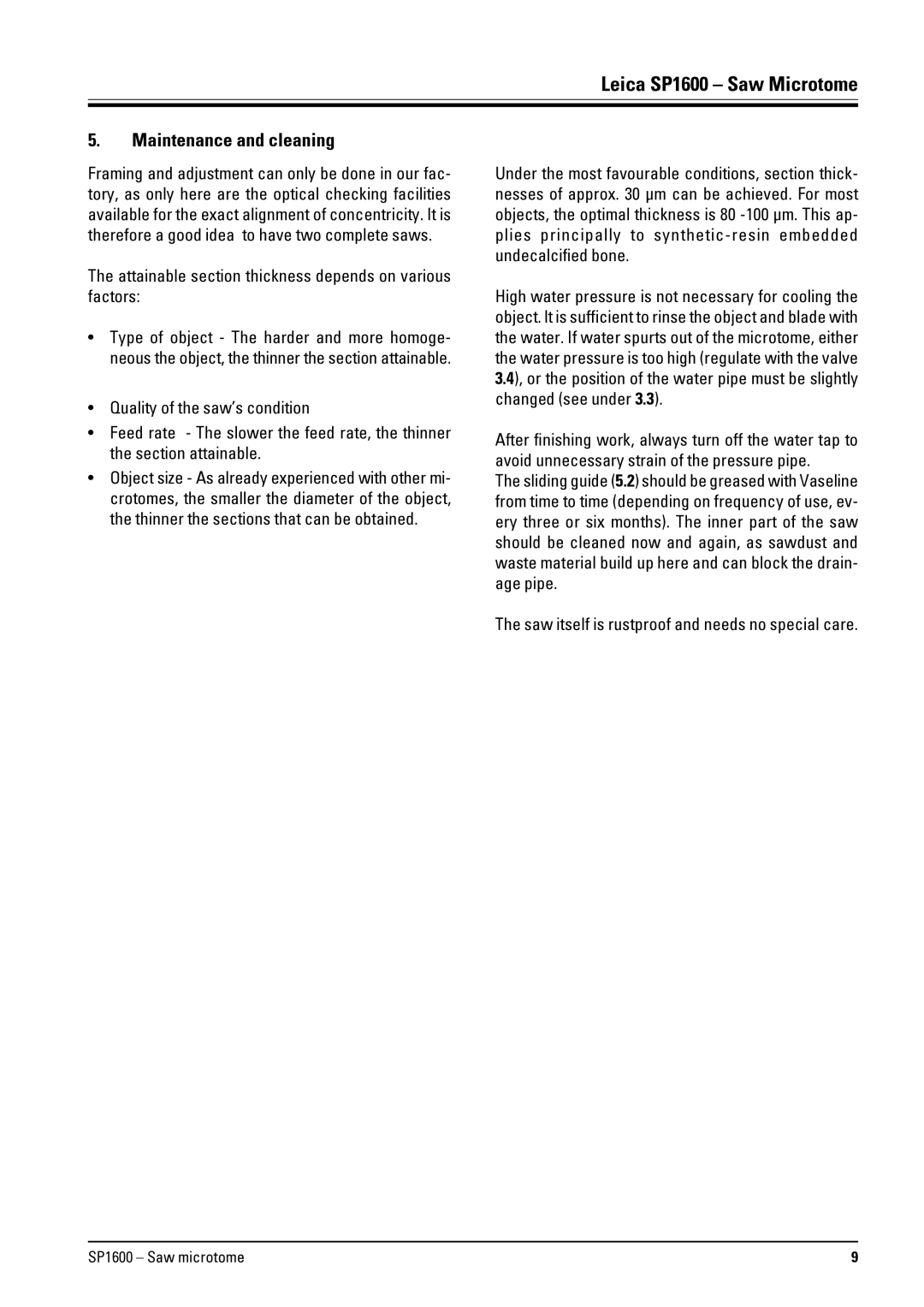
Leica SP1600 – Saw Microtome
5.Maintenance and cleaning
Framing and adjustment can only be done in our fac- tory, as only here are the optical checking facilities available for the exact alignment of concentricity. It is therefore a good idea to have two complete saws.
The attainable section thickness depends on various factors:
•Type of object - The harder and more homoge- neous the object, the thinner the section attainable.
•Quality of the saw’s condition
•Feed rate - The slower the feed rate, the thinner the section attainable.
•Object size - As already experienced with other mi- crotomes, the smaller the diameter of the object, the thinner the sections that can be obtained.
Under the most favourable conditions, section thick- nesses of approx. 30 µm can be achieved. For most objects, the optimal thickness is 80
High water pressure is not necessary for cooling the object. lt is sufficient to rinse the object and blade with the water. If water spurts out of the microtome, either the water pressure is too high (regulate with the valve 3.4), or the position of the water pipe must be slightly changed (see under 3.3).
After finishing work, always turn off the water tap to avoid unnecessary strain of the pressure pipe.
The sliding guide (5.2) should be greased with Vaseline from time to time (depending on frequency of use, ev- ery three or six months). The inner part of the saw should be cleaned now and again, as sawdust and waste material build up here and can block the drain- age pipe.
The saw itself is rustproof and needs no special care.
SP1600 – Saw microtome | 9 |
